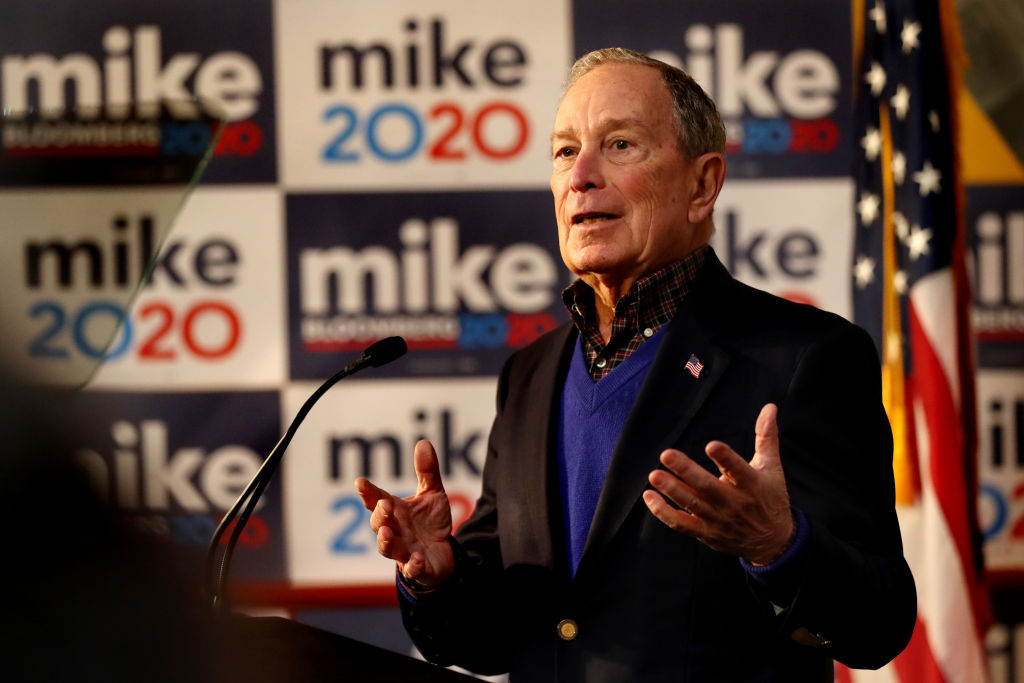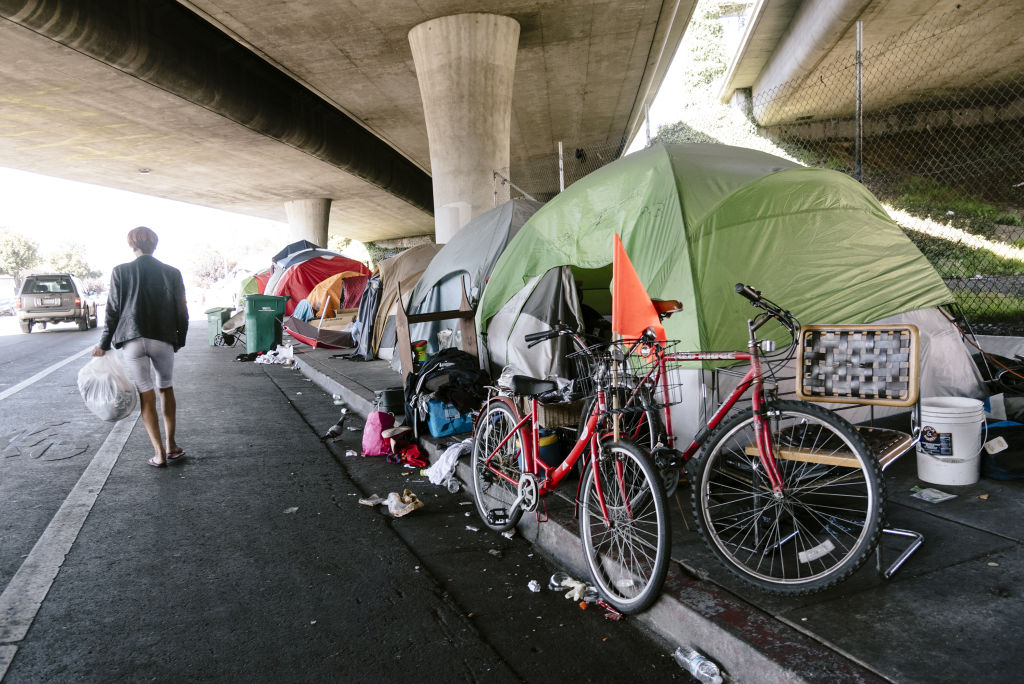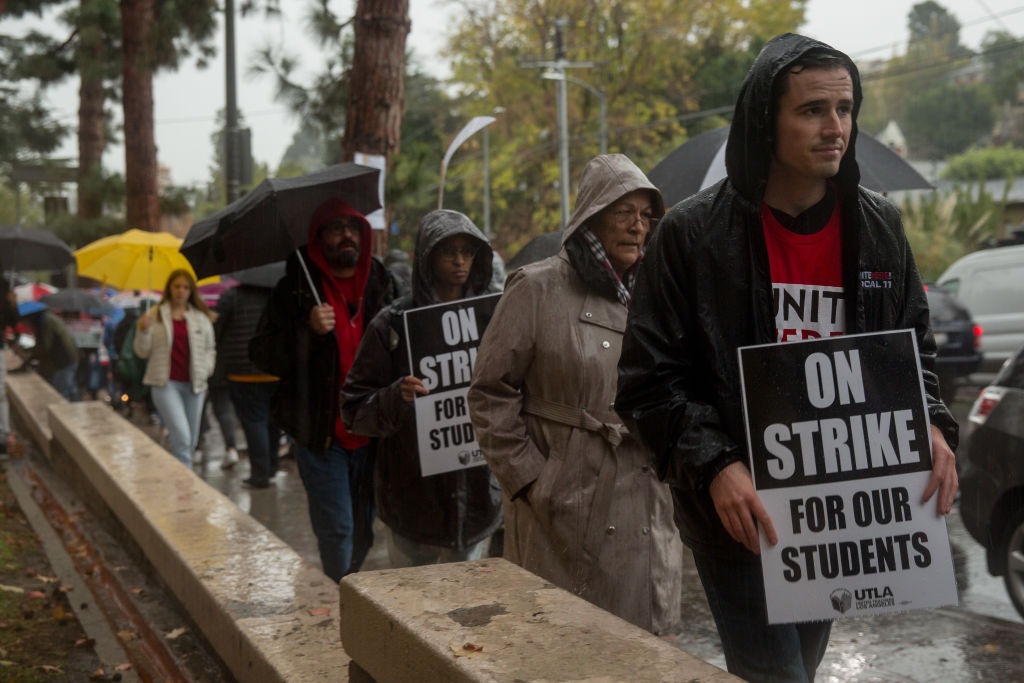
School board elections are usually local affairs, with candidates soliciting money from neighbors at pizza parties and dragging along friends to knock on doors and ask for votes.
That’s what Chris Jackson expected when he decided to run for the school board in Oakland, Calif., in 2016. He’d previously been elected to the board of the City College of San Francisco and thought he knew how to build the ground game to win in Oakland. He started gathering endorsements—from the state superintendent of public schools and city council members and the Alameda County Democratic Party—and began raising money, feeling optimistic about his chances. By October, he’d raised almost $12,000. But Jackson did not plan for Michael Bloomberg.
In October of 2016, a few weeks before the election, Bloomberg gave $300,000 to the political action committee sponsored by Go Public Schools Advocates, an Oakland-based nonprofit that supports charter schools. The committee, Families and Educators for Public Education, then spent $153,000 in support of James Harris, Jackson’s opponent. Dwarfed by funding, Jackson watched as the PAC paid for web ads and campaign literature and phone banking for Harris, and then as it posted an attack ad about Jackson on Facebook. “It’s so disappointing to work hard, gather volunteers, and then see an out-of-towner like Bloomberg drop hundreds of thousands of dollars and just win through no effort but money,” Jackson, a special-education teacher in Oakland, says.
Bloomberg was not the only donor to Families and Educators for Public Education, but his $300,000 stands out. In the campaign-finance records, there are pages upon pages of donors who gave $10 or $25 apiece; the second-biggest contribution on the filing in which Bloomberg’s donation was disclosed was $250 from a retiree. “There’s no way outsiders should have more speech in Oakland than the actual residents and voters do,” Jackson says.
It’s become normal for billionaires to spend lots of money on political causes. In 2010, the Supreme Court’s Citizens United decision overturned restrictions on independent expenditures and opened the door for groups like Families and Educators for Public Education to receive unlimited amounts of money. Voters tend to like billionaire spending if it aligns with their political positions—the same people who are protesting Bloomberg’s education spending may have been elated about the $50 million he gave to the Sierra Club’s Beyond Coal initiative, which helped shut down or retire coal-fired power plants across the country. But critics say this outside money drowns the voices of everyday voters and amplifies the opinions of the rich, whether they be Charles G. and David H. Koch, who have spent millions on U.S. Senate campaigns and local school board races, or Michael Bloomberg.
Bloomberg, a former New York mayor who has already spent more than $200 million on his bid to win the 2020 Democratic presidential nomination, has been able to do what most Americans can’t, critics say: bypass the democratic process. Philanthropy “gives special weight to the interests of wealthy people in the policy process, which in a democratic society is meant to be an opportunity for all citizens, interests, and voices to count equally,” says Rob Reich, co-director of the Center on Philanthropy and Civil Society at Stanford. Even if a billionaire donor’s favored candidate loses, critics say, the money they gave already created an uneven playing field that corrupted the election process.
Jackson’s experience was no fluke. In the past decade, Bloomberg has spent millions in state and local school board races in California, Colorado, Minnesota, Louisiana, and New Jersey, turning what were once low-profile down-ballot races into contests where candidates without significant outside money were vastly outspent. Most of this funding has gone to candidates who support the expansion of charter schools, which receive government funding but operate independently of the school district. While charter supporters say the schools are important in educating left-behind students, opponents say they divert money from public schools and enroll fewer special education students, putting an additional burden on public school districts. The issue particularly rankles in cities like Oakland. With struggling public schools and vast income gaps among residents, it is currently the California district with the largest share of students in charter schools.

Bloomberg’s money has gone especially far in California, where two ethnically and economically diverse school districts, Los Angeles and Oakland, have embraced charter schools. He gave $500,000 to the California Charter Schools Associations Advocates Independent Expenditure Committee in February of 2017, which in turn spent hundreds of thousands of dollars on two pro-charter candidates running for the Los Angeles Unified School District school board. After that race—at the time, the most expensive school board race in U.S. history—pro-charter board members held the majority on the school board for the first time and then appointed Austin Beutner, a former investment banker with no experience running a school or a district, to be superintendent. Beutner is still superintendent of LAUSD, the second-largest school district in the U.S., after New York City’s. (When he was mayor of New York, Bloomberg in 2010 appointed a publishing industry executive with no experience running a school board to be New York City’s school chancellor; she lasted 95 days.) In total, according to state election filings, Bloomberg has given nearly $5 million to independent expenditure committees backed by the California Charter Schools Association.
Bloomberg has also funded political action committees and candidates in school board races outside of California. He spent $290,000 on political action committees supporting pro-charter candidates in a 2011 Louisiana state school board race, and gave $5,000, the maximum legal donation, to each of five pro-charter candidates. In 2015, ahead of another state school board race, he gave $1.4 million to Empower Louisiana Inc., a political action committee that advocated for pro-charter candidates. Seven of the eight “pro-reform” candidates who supported charter schools won their elections. Bloomberg also gave $400,000 to a PAC backing a former charter school executive in a race for mayor of Newark; $185,000 to committees involved in education-related campaigns in Denver; and $100,000 to a committee supporting pro-charter candidates in a Minneapolis school board race.
Bloomberg’s campaign declined to comment for this story. But Gregory McGinity, the executive director of California Charter School Association Advocates, which has received money from Bloomberg, says that the billionaire’s money actually makes races more democratic by enabling groups like his to help low-income families and students of color have more of a voice. “Mr. Bloomberg has been willing to support candidates who stand up for families and communities,” he says. “I think that makes it more democratic, when those communities who don’t have a voice are given an opportunity to move an institution in a different direction.” Outside money spent by people like Bloomberg is no different than money spent by national teachers’ unions in local races, he says. (Groups supportive of teachers’ unions spent $5.2 million in the 2017 Los Angeles school board race, compared to the $9.6 millions spent by pro-charter groups, according to the Los Angeles Times.)
Some Oakland parents say that Bloomberg’s money decided the Oakland school board race, rather than the parents and voters in Oakland doing so. “I am not comfortable with the level of outside money coming in,” says Kim Davis, an Oakland parent who founded an organization, Parents United for Public Schools. “It’s no longer about what parents want and need, it’s about this agenda coming in from Bloomberg and these outside organizations.” Outside spending from people like Bloomberg “got out of control” in 2016, she said. An election that had previously consisted of shaking hands at farmers’ markets and knocking on doors was now seeing ads for pro-charter candidates during Warriors’ games on TV and a flood of mailers for pro-charter candidates, while their opponents could only fund one. It seemed like a lot for an election where only about 78,000 votes were cast. “It’s impossible to compete with that level of spending,” Davis says.
There are around 600 billionaires in the United States, up 50% from a decade ago. (Bloomberg is the 12th richest, sandwiched between Sergey Brin and Jim Walton, according to Forbes.) And they’ve increasingly used their money to influence public policy, says Reich. Sometimes, they criticize what they see as an inefficient public system and use their money to try to create a better private one; other times, they try to limit what they pay in taxes and then complain about the lackluster performance of government entities, he says. “Philanthropy can be a way to get around democracy,” he says. “There’s extra weight on the scale of the policy preferences of the wealthy.”
But the policy preferences of the wealthy don’t mirror those of most citizens, he says; one Northwestern study found that the top 1% of U.S. wealth-holders are more conservative than the U.S. as a whole regarding spending on schools, ensuring access to college for everyone, and making sure that people of color have schools that are equal in quality to those serving mainly white students. The study also found the wealthy are much more supportive of charter schools than the general public.
Teachers’ unions say that Bloomberg’s donations go to organizations trying to privatize a public good. When the pro-charter candidates took control of the Los Angeles School Board in 2018, Beutner, the new superintendent, spent $3 million on outside consultants who were developing a performance-based rating system for schools, according to confidential documents unearthed by The Los Angeles Times. “The problem is that you have people who know nothing about how a particular sector works, and they’re able to use their money to try and buy elections,” says Alex Caputo-Pearl, president of the United Teachers of Los Angeles.
McGinity, of the California Charter Schools Association, argues that Bloomberg’s money went to support policies that he had tested first in New York City’s schools, and that were proven effective. Charters allow low-income families to choose a better education for their children, he says, just as parents who send their kids to private school do.

Roseann Torres, a current Oakland school board member, says it became evident to her that Bloomberg and other outside donors would only finance candidates who worked closely with GO Public schools and other pro-charter organizations. Bloomberg had given her campaign $600 when she first ran in 2012. But after she was elected, she started seeing what she viewed as problems inherent in charters. In 2016, Bloomberg’s money went to support a candidate challenging her for her seat. “When it became clear I was not someone the charters could buy, they made an about face,” she says.
Torres became skeptical about charters after touring one in Oakland. While her daughter, who attended public school in Oakland, was starting the school year without a science book, students at the charter had lab coats with their names embroidered on them and Macbook computers. She started declining to attend events put on by GO Public schools, she says, only to see Families and Educators for Public Education, to which Bloomberg gave $300,000 in 2016, spend $115,000 on the 2016 campaign of Huber Trenado, who was running against Torres. The money went to web ads and campaign literature and staff, dwarfing the $21,000 that Torres raised from family and friends. Torres eked out a win anyway.
Bloomberg’s funding in the Oakland school board races continued in 2018, when he gave $250,000 to GO Public Schools California. In a 2018 campaign filing, Families and Educators for Public Education said it had received $120,000 from Bloomberg through GO Public Schools California. It then gave $116,000 to Gary D. Yee, who was running for an open school board seat against Clarissa Doutherd, a community organizer who had been endorsed by the Oakland teachers’ union and the Alameda County Democratic party. Yee won the seat.
Jessica Stewart, the executive director of Go Public Schools Oakland and GO Public Schools Oakland Advocates, says that GO is a network of families, educators and community members, not an outside group. Bloomberg’s donation supported efforts to involve the community in school board elections, she says, which often don’t get enough attention. But “it’s impossible to know” what effect Bloomberg’s donation had, she said; most of the candidates GO has supported use volunteers as well. Charter schools are not the reason Oakland schools are in trouble, Stewart says—the district has a long history of budget deficits. GO says it is advocating for greater educational opportunity for families of color and low-income families in Oakland; roughly two out of three Oakland children can’t read at grade level.
Oakland is a rapidly changing city that’s more diverse than neighboring San Francisco; it is 36% white, 24% black, and 18% of its people live below the poverty line. The Oakland Unified School District went into state receivership in 2003, during which time it made massive cuts in things like sports programs and high school guidance counselors and approved the opening of more than a dozen charter schools. There are now 33 district-authorized charter schools in the district, and enrollment has jumped to 17,000, from 2,800 in 2003. Enrollment in public schools (not including charters) fell to 37,000, from 48,000 in 2003. Today, more than one in four of Oakland’s public school students are enrolled in charter schools.
The city’s schools compete against each other for basic resources, says Keith Brown, the president of the Oakland Education Association. Often, the district closes schools and sells the land to the charters, giving up valuable property, he says. Since the 2016 election, the school district has spent money on outside consultants that should be going to students, he says. Though Oakland brings in more revenue per student than the average district, it spent $55.7 million on outside consultants in the 2017-2018 school year, three times the state average, a grand jury found.
Teachers in Los Angeles and Oakland have pushed back against what they say are outside interests driving pro-charter policies. Los Angeles teachers went on strike for six days in January 2019 and got the school board to agree to vote on a resolution asking the state to cap the number of charters. Oakland teachers went on strike last year to protest the planned school closures, arguing that money being diverted to charter schools is depriving the district of much-needed funds. The strike ended with Oakland agreeing to a moratorium on new charters.
The state passed a bill last year that placed some restrictions on charters, but teachers’ unions say that now, charters can go to county boards of education if a local school board denies them what they want. Already, tens of thousands of dollars are being spent on a race between a candidate backed by a teacher’s union and a pro-charter candidate for a seat on the Alameda County Board of Education. (Oakland is located in Alameda County.) And in Oakland, four of the seven seats on the school board are up for election in November.
There’s one thing teachers’ unions aren’t worried about this year, though. They’re pretty sure Michael Bloomberg isn’t going to be a factor. His billions, after all, are tied up in a different election—his presidential campaign.
More Must-Reads from TIME
- Cybersecurity Experts Are Sounding the Alarm on DOGE
- Meet the 2025 Women of the Year
- The Harsh Truth About Disability Inclusion
- Why Do More Young Adults Have Cancer?
- Colman Domingo Leads With Radical Love
- How to Get Better at Doing Things Alone
- Michelle Zauner Stares Down the Darkness
Contact us at letters@time.com
